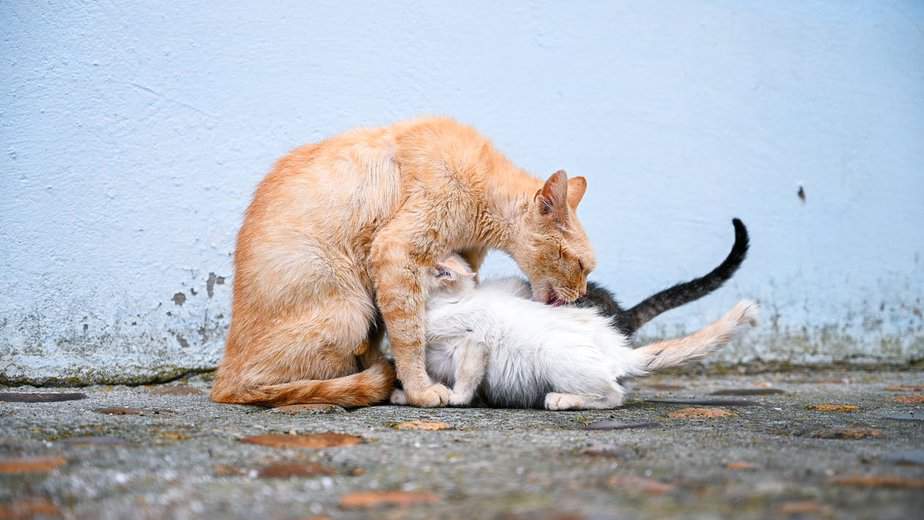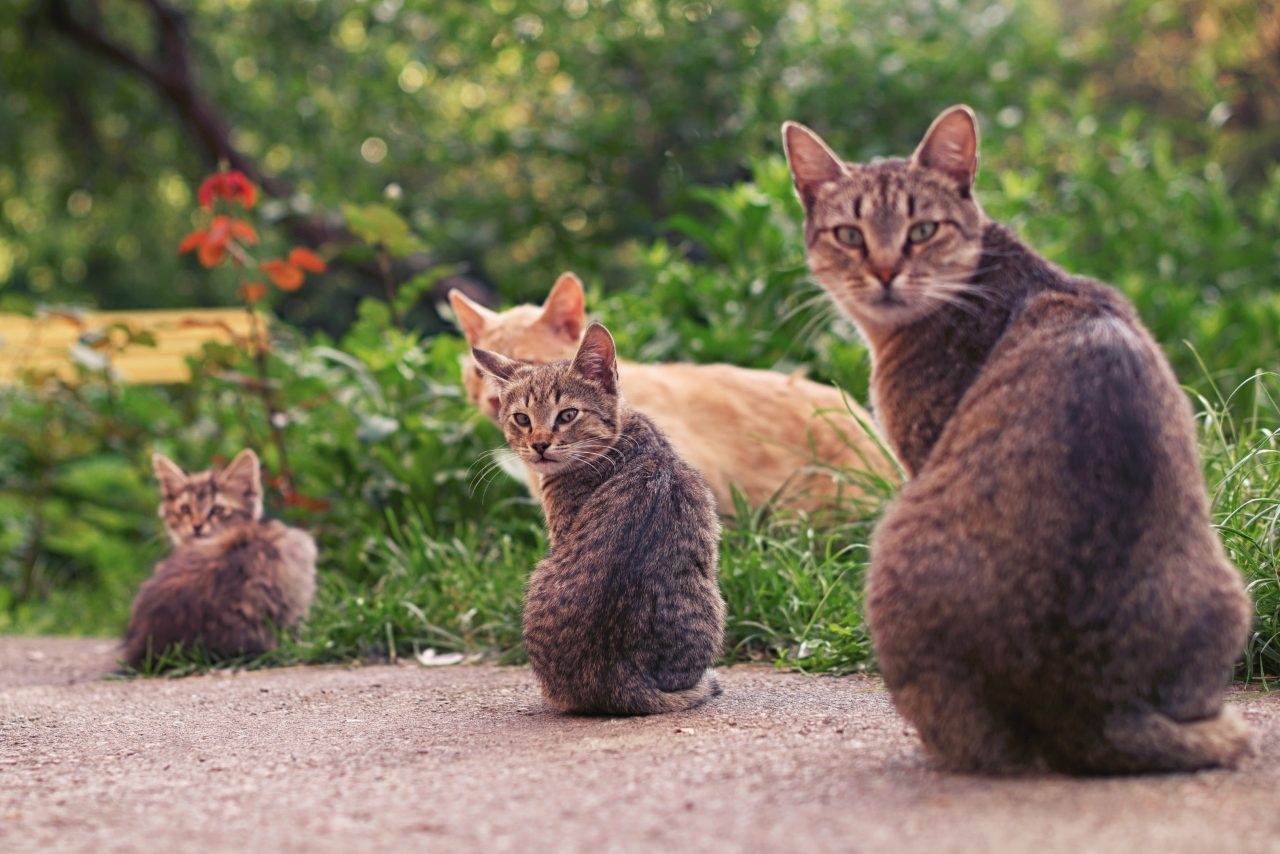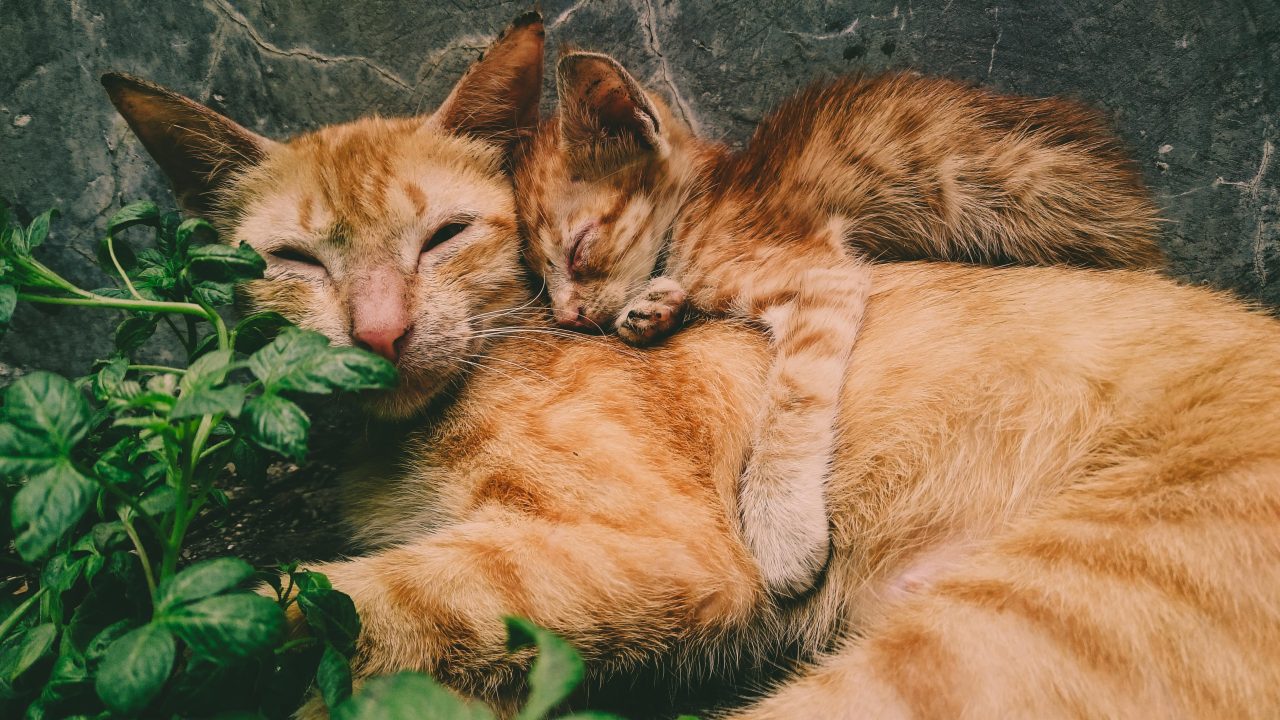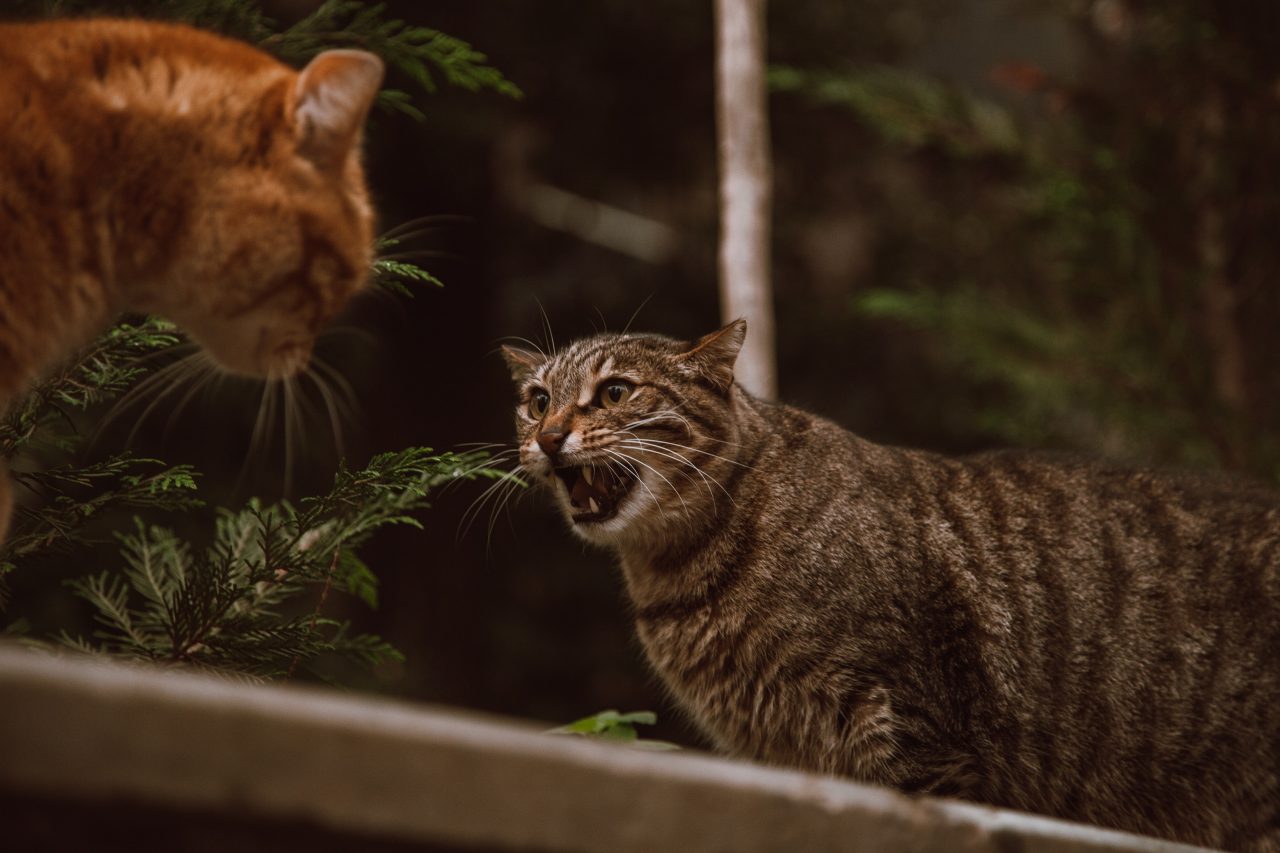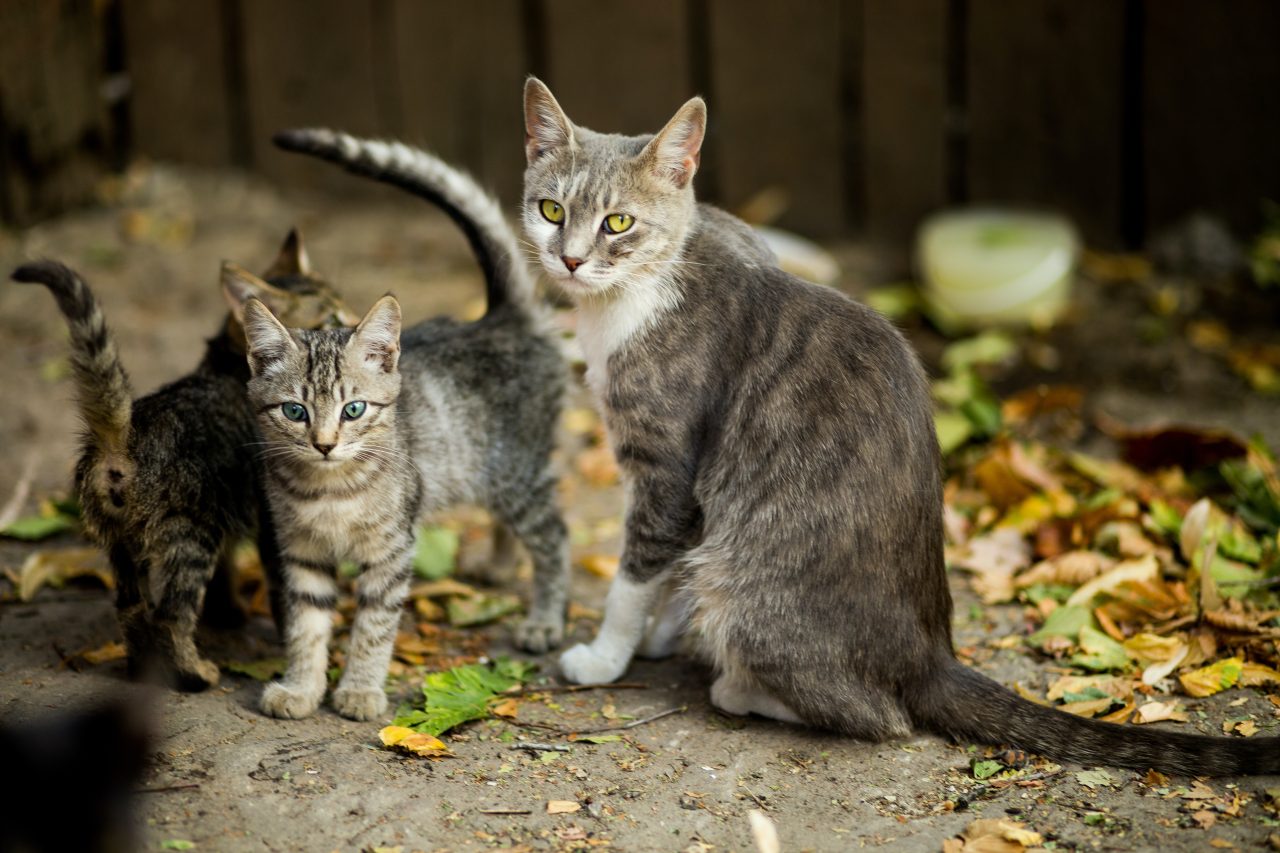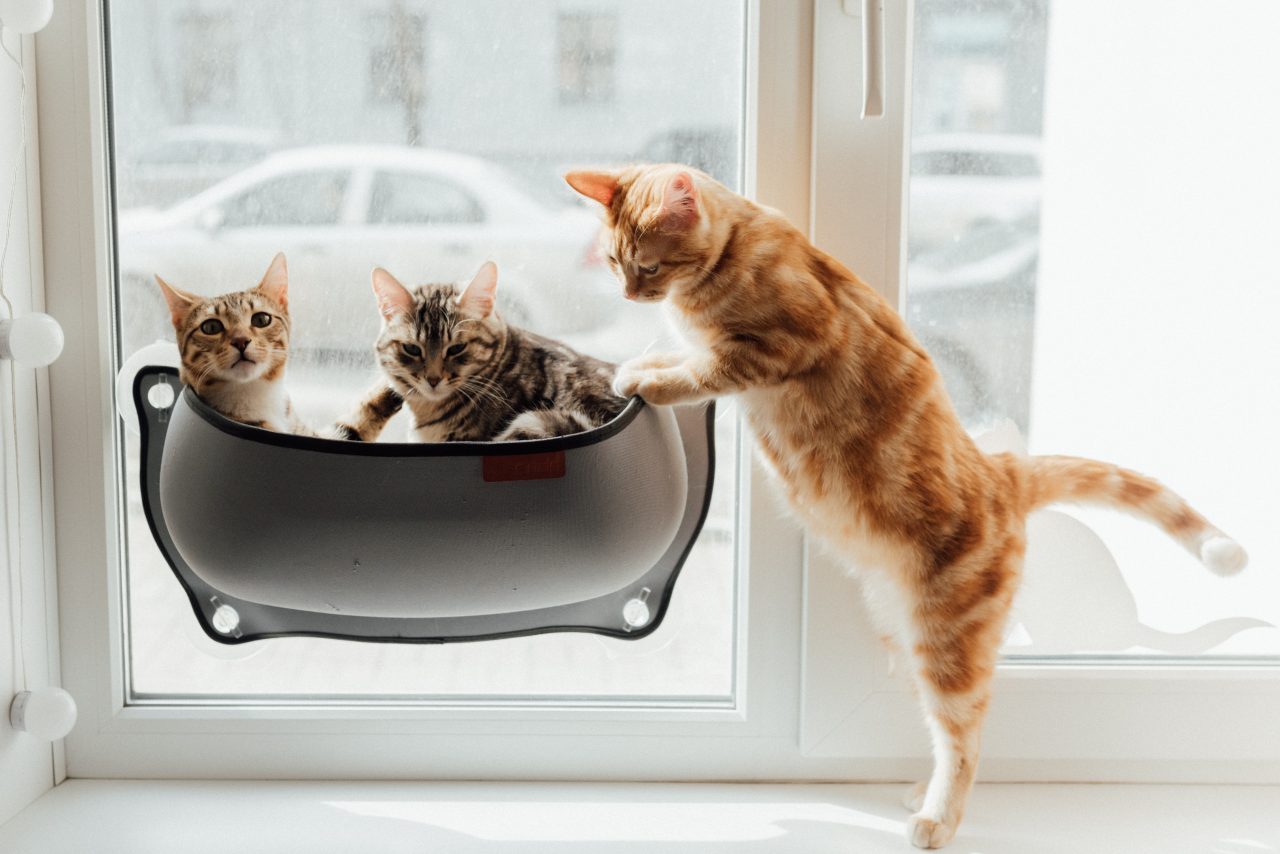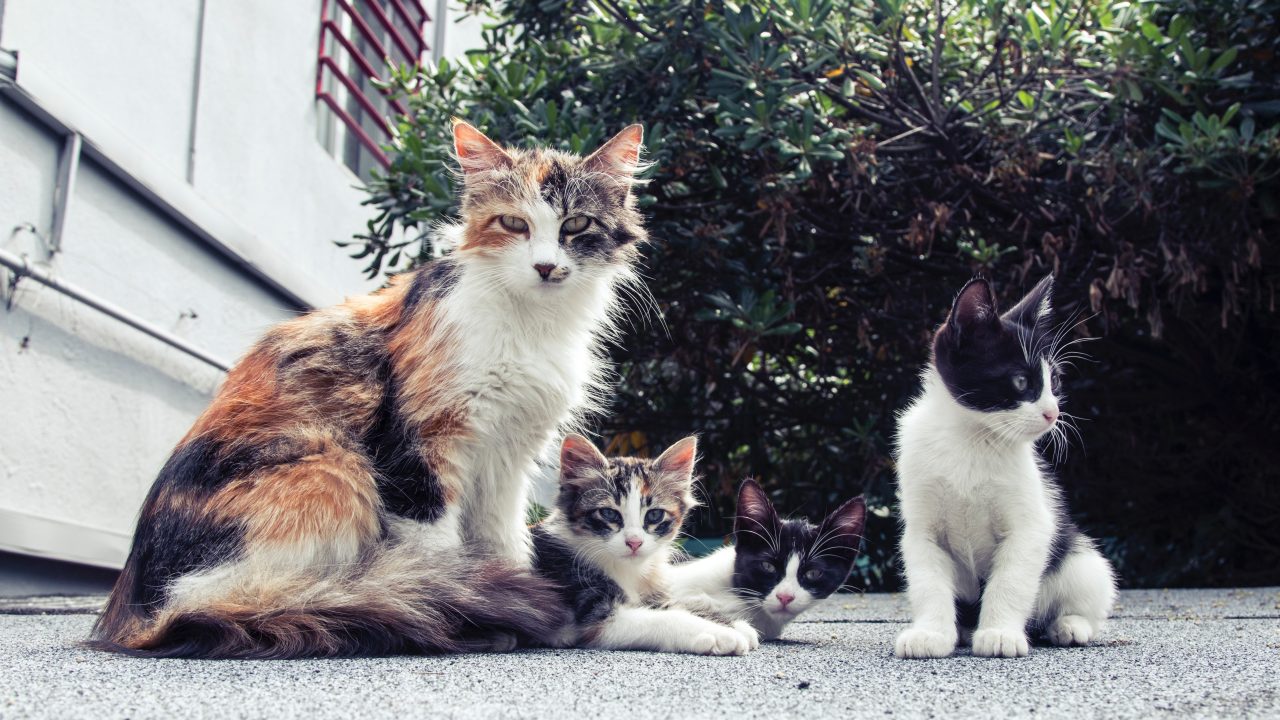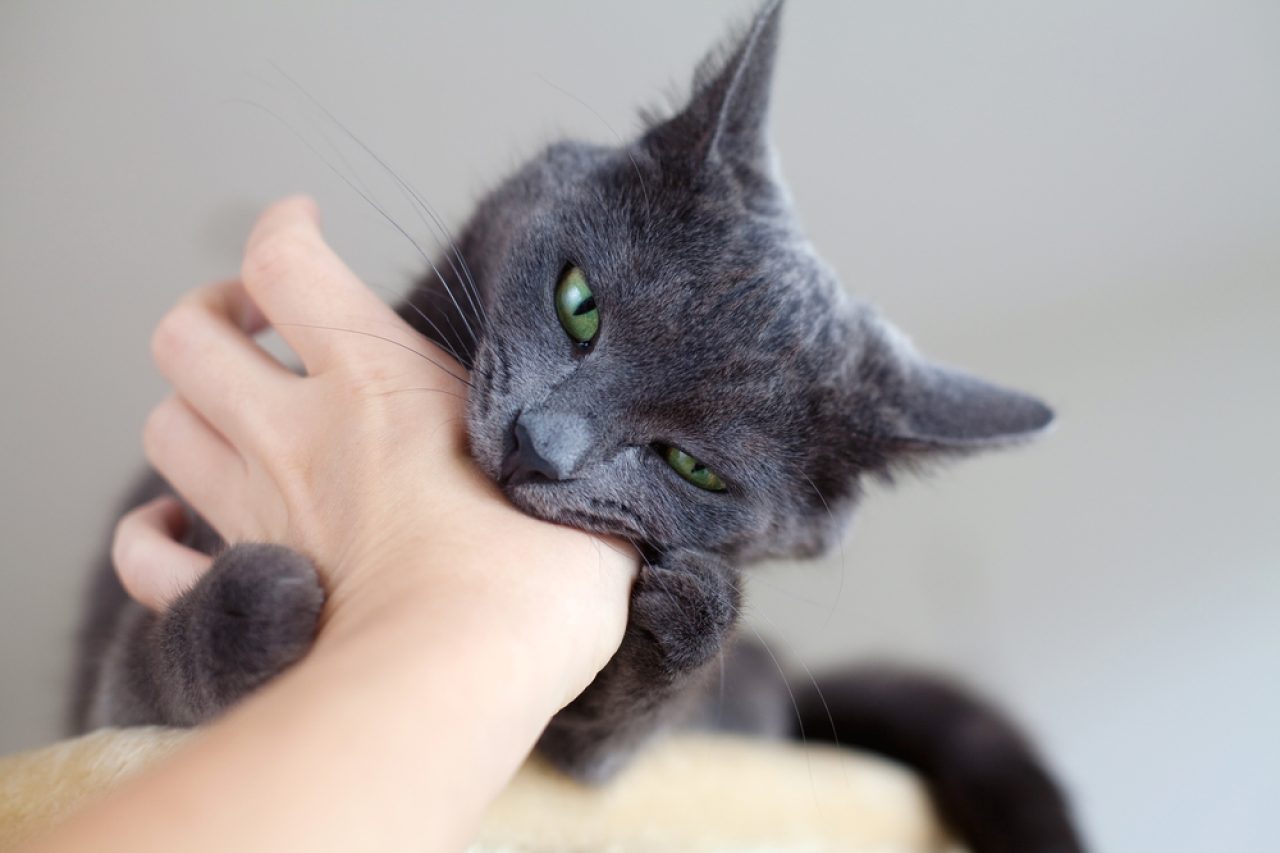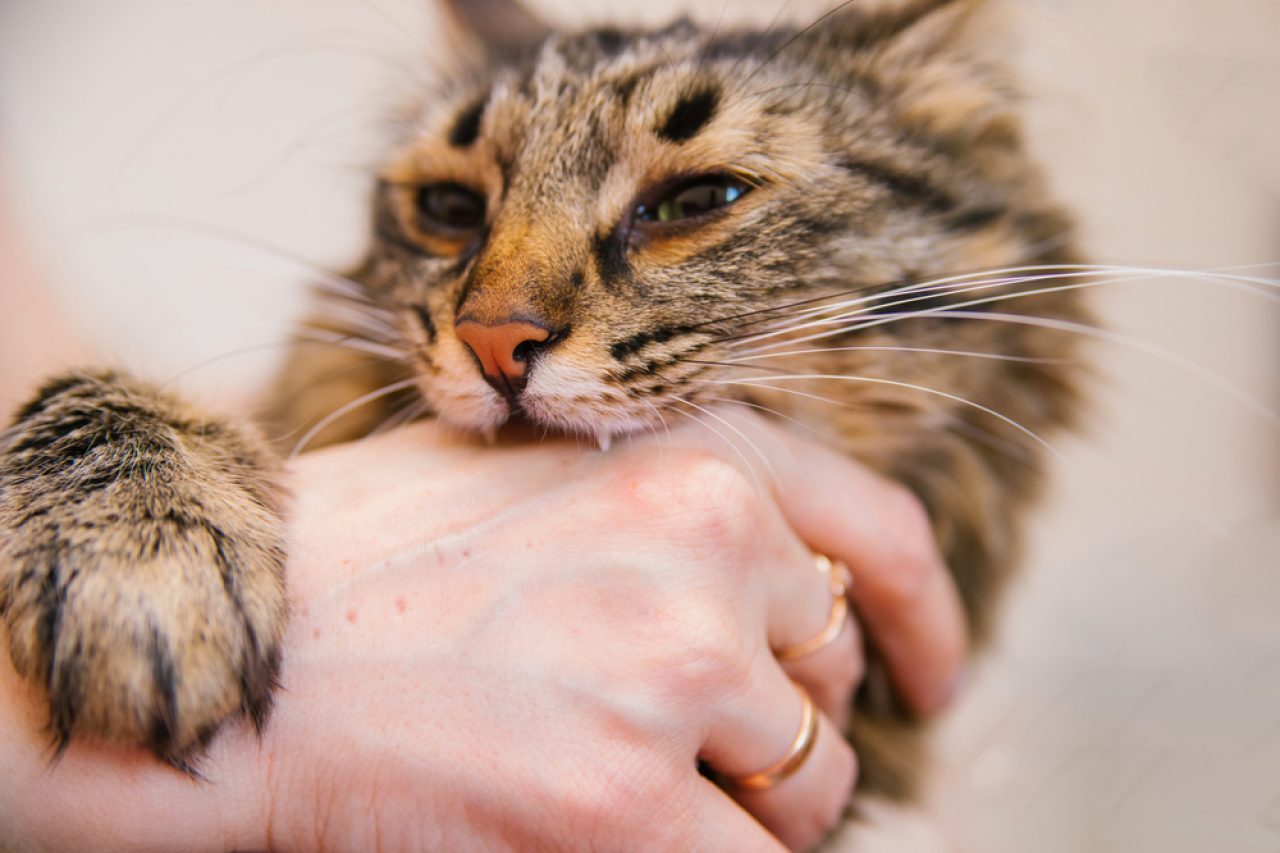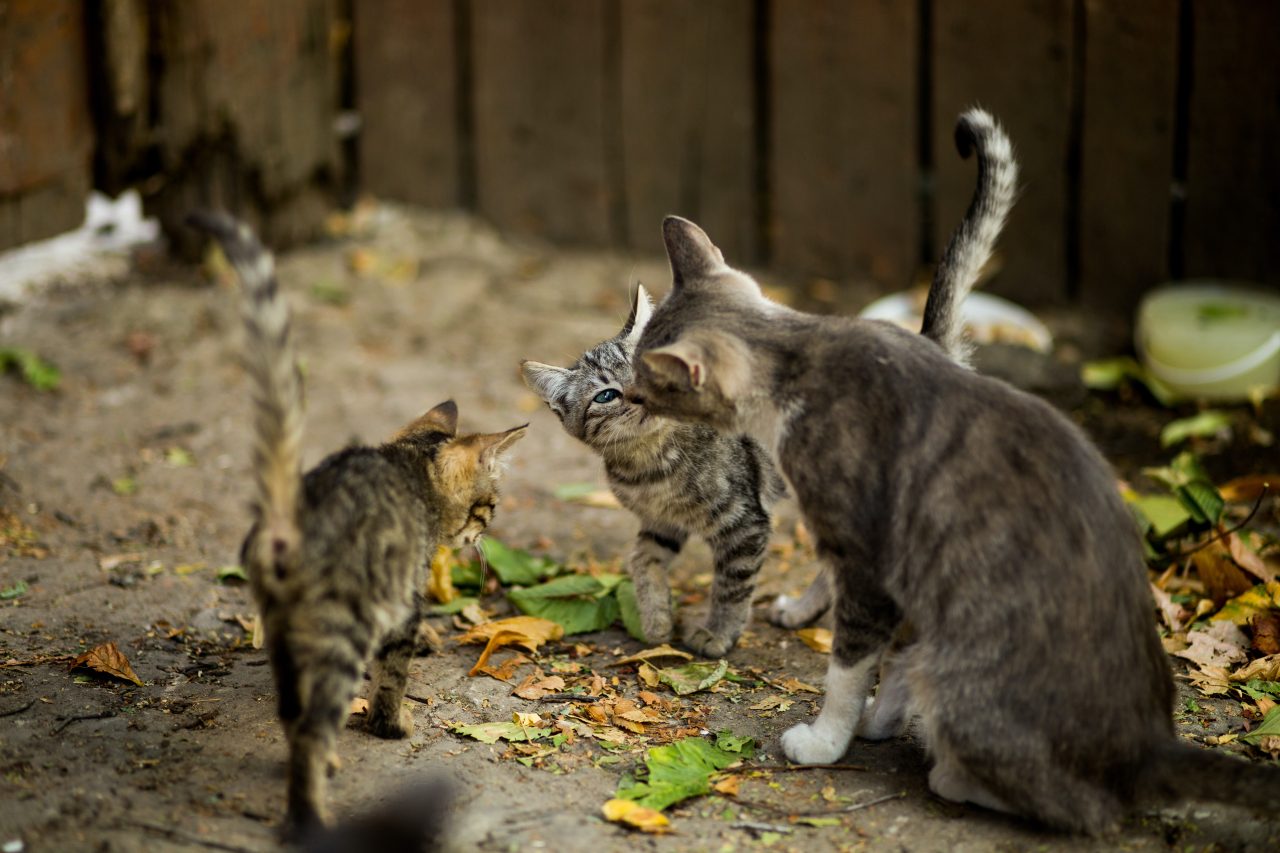📖 Table of Content:
Seeing a mother cat biting and kicking kittens can be a hard scene to take in. However, there’s more to it than meets the eye for sure.
You know how every mother does things on purpose? Well, the mother cat surely has a reason for her actions. Still, this behavior might seem a bit too harsh for humans.
It’s because we oftentimes tend to forget just how much the human world differs from the animal world. Cats have been domesticated for quite some time now. They make up a great part of our lives and we’re so used to them that we’ve tried to humanize them in many ways.
This is one of the possible reasons why we have trouble comprehending some feline behaviors.
Some people think it’s simple to raise a cat. After all, cats can be trained to use litter boxes with ease and don’t need to be walked every day. However, if we’re being completely honest, dealing with felines may be rather difficult.
When you want to snuggle with them, they become irritable. It can hurt when they leave and even scratch you unintentionally. We get accustomed to some of these actions when residing with cats. We simply perceive them as usual and normal.
But seeing a mother cat biting and kicking her kittens can’t be justified in the same way. This might be a fairly scary event for cat owners who have never witnessed their pet exhibiting such behavior.
So, why is a mother cat biting and kicking kittens?
There are various reasons why your cat could be biting and kicking her kittens. The most frequent explanations include teaching them who is in charge.
Furthermore, she might be establishing territory, using harsh discipline, or it’s a part of her training. Although the mother cat usually has the best intentions, it might appear hostile.
But is a mother cat biting and kicking her kittens natural behavior? Do mother cats retain memories of their offspring? Is there any explanation for the queen cat’s unusually hostile behavior toward her juvenile cats?
There are several explanations for why your feline has been acting unusual (by your standards, at least). Most of the time it’s quite natural, but occasionally it may get a bit out of hand.
As their owner, it’s crucial to know when you should interfere and when you shouldn’t. The major reason you’ll see a mother cat treat her kittens harshly is that she’s attempting to teach them how to live in the outside world.
She’s probably showing them how to behave, fight, and hunt. Thus preparing them for whatever circumstance they could run into.
Besides being their teacher, here are some other reasons why she’s behaving the way she is.
1. A mother cat is simply playing with her kittens
You may already be aware that using your hands when playing with your cat isn’t advised since she could injure you. It will then be challenging to get her to quit biting as an adult.
Conversely, make an effort to get her to play with novelty fishing rods, plush mice, and rattle-y toys. For instance, at a happy moment, she may lightly bite the hands, legs, arms, or even the nose.
Therefore, it’s possible that your feline is only having a play session with her babies. Sure, it might look a bit rough, but we all need some tough love from time to time.
So, don’t fret the moment you see mama cat being a bit harsh with her kittens. She’s doing it on purpose to deliver some kind of message.
2. Jealousy is the enemy
Jealousy is another factor contributing to your cat’s aggressive behavior toward her young. Felines are typically showered with affection and attention by their owners while they are expecting.
Receiving the nicest food possible, receiving cuddles whenever they wantd, and having their bowls filled without having to ask for more.
Your cat becomes accustomed to this undivided attention throughout this time. Once she gives birth, though, she can start to feel like you’ve abandoned her. The reason is that you concentrate too much on the new family members.
Even if you aren’t specifically neglecting the mother, the fact that she was accustomed to your undivided attention prior to this whole situation would make her envious of her babies. And in response, she’ll get hostile or ignore them.
3. Small chances of survival
The majority of the prior incidents were on the milder end of the scale; your mother cat was only rough with her kittens but did not actually do any harm.
Unfortunately, this doesn’t always happen. There are times when your cat will go too far and severely hurt or, in the worst-case scenario, kill her youngster.
It can be a sort of illness or deformity, but cats often act this way when there’s something wrong with the kitten. She, as a mother, feels that her offspring has small chances of survival and decides to act accordingly.
4. Mother cat feels threatened
Seeing a mother cat biting and kicking kittens feels terrible. But you need to understand that if a cat feels threatened, she may become hostile toward her young.
She could leave them if this occurs so she can save herself. Examples of this include a cat or other animal menacing her or a loud, mysterious sound that frightens her.
Although there may be other causes, this is one scenario in which it could occur. If this is also happening, I’ll explain how to stop your cat from biting the kittens in the part that follows.
5. Kittens are annoying
When the kittens are 12 to 14 weeks old, the mom normally lets them stay by her side. That is until she decides they are old enough to be left on their own and pushes them out of the way. This is how cats often behave.
The young cats will ultimately chase her away once they are big enough. This will compel their loving, old mum to find another territory, so while it’s terrible to watch, there’s some good reason to it.
However, if the kittens are under 12 to 14 weeks old, you should take the rejected kitten to the doctor since there could be a health issue.
How to stop a mother cat from biting and kicking kittens?
A cat could appear to be attacking her kittens for a variety of reasons. Their age and the anticipation that they will grow independent are two typical causes.
This indicates that after the kittens reach a particular age, the cat usually becomes impatient with them and expects them to care for themselves. This conduct may appear odd to us as humans, and by our standards, it is. However, the world of cats is different from ours.
So, try not to be too astonished if you see this happen now that you know why it may be occurring. Also, take the following steps to prevent serious harm.
1. Separate the mother from her kittens
When you see your cat injuring or bleeding her youngster, the best course of action is to separate them. As much as you can, be sure to keep the mother away from her child.
Allow interaction only when you are watching them so you can step in if anything bad happens.
In situations like these, the kitten is typically too young and still needs maternal care. So, make sure to keep her as warm as you can, assist her when it’s time to use the litter box, and give her the nourishment she needs to eat.
You can give her kitten formula produced specifically for kittens. That is if it’s too soon to offer her regular food to replace her mother’s milk. As far as you can, avoid giving her ordinary cow milk or milk meant for infants because they might make her unwell in the future.
Make sure to schedule a visit with your veterinarian, and bring the mother and all of the kittens. You should ask for advice on how to handle any anomalies.
2. Praise the mother cat
Reward your cat when she’s doing the way you want, such as not biting or being quiet and well-mannered. Offering her some delectable cat treats or some of her preferred options can accomplish this.
Even though it would seem counterproductive, cats are known to respond better to positive than negative reinforcement. So, this is a quicker approach to achieving your goals.
3. Keep an eye out if biting and kicking don’t stop
If you notice that the mother cat’s been ruthless towards her young lately, you might want to intervene. Try jumping in between them any time this happens.
Continue doing this for some time and watch your cat’s reaction. You will need to persevere and repeat the instructions if things aren’t getting better.
Never leave your cats unmonitored. This might be a difficult task but it’s crucial to have them constantly under your supervision to prevent it from happening again.
Do cats bite often?
Perhaps you’re making contact with the mom cat in a delicate or exposed area, like the belly. In response, she’ll bite you and kick you with her back legs while grabbing your hands as if they were prey.
This mindset is a result of her mother teaching her to act naturally. Moreover, it assists in dispatching the prey. But, cats can bite for a variety of reasons.
They frequently bite to express themselves, such as when playing, or to signal that you should leave them alone. This specific bite is frequently followed by quick, repetitive kicks as they hold you motionless with their clinched jaws.
While it doesn’t actually damage the other cat, it serves its intended purpose – getting their attention and alerting them that whatever they are doing is, in the opinion of the other cat, “bad.”
Cats may bite fiercely as well, but they typically do it with distinct body language. This includes stiffened bodies, laid-back ears, and tails that frequently wave fast and sharply back and forth.
Some people will try various tactics to get their feline to stop biting them. This might include yelling at them or putting a finger up in their face.
Instead, wait until the cat has calmed down before you connect with her again. Your pet will modify her behavior as she grows to understand that throwing these minor tantrums won’t get her what she wants.
What to do if your cat bites you?
Okay, a mother cat biting and kicking kittens seems to be a natural scene. But what should you do if the cat suddenly attacks you when you are giving her cuddles, biting and clawing you with her hind legs, and kicking ferociously?
First and foremost, it’s important to realize that the cat never attacks maliciously. Most essential, you must never yell at your cat or use profanity!
First, be motionless; every movement will simply make her more agitated. Talking to her or even petting her will make her think she’s right and encourage her to continue biting your hand; at that point, there will be nothing you can do to stop her.
You will undoubtedly relax your hold if you do this. Now, one piece of advice we can give you is to let her come to you on her own terms if she wants to snuggle.
Finally, you must always touch her softly and delicately, avoiding any forbidden places like her belly or legs. Ideally, begin massaging the top of the head and work your way back.
What if she crosses the line?
Your cat is using a method that has been effective for cats since the beginning of time. Prey doesn’t usually go down easily after being caught, so a cat can rake her rear claws across the prey’s exposed belly by holding it in place with her paws and tight teeth.
When your cats act this way toward you, they are either honing their play skills with you or they are just irritated and need some space. They pick up this little trick when they are kittens, and it has become one of their “go-to” ways of expressing themselves whether they are very playful or just agitated.
It is natural, however, if it tears the skin, your cat hasn’t mastered efficient control of her jaws or claws yet. If the bite or scratch damages the skin, stop all contact right once. Hold up the scratched or bit area and exclaim “oww.”
After that, stop playing with your cat for a short while. That way, your feline will eventually receive the message and gradually gain a little more self-control, but it can take a few tries.
Bonus tip: By stopping the game when your cat “bunny kicks” you, you are also actively discouraging this behavior, so you should gradually see less of it.
Closing thoughts
You were probably worried when you saw a mother cat biting and kicking kittens. Well, that’s understandable. However, I hope we’ve offered you a reasonable explanation for her behavior.
Sometimes we forget that our furry pets are still animals that belong in their own world. They have their own behavioral patterns and rules.
As much as we’d like to think that we can always influence their actions, it’s not true. Most of the time, we can jump in and separate them from each other.
On the other hand, teaching and learning happen in every aspect of growing up. Even if your mother cat is biting or kicking her kittens, she’s probably making them learn a valuable lesson given the situation.
In this post, we covered the many causes of a mother cat biting and kicking her young and how to assist them in getting through this stage. The mother and kitten should be able to reunite after careful observation and, of course, love and care for both parties.
You shouldn’t be concerned as long as she isn’t inflicting any significant injuries and there isn’t any blood. Keep them apart from one another if harm occurs or consult with your vet if you notice anything unusual.
